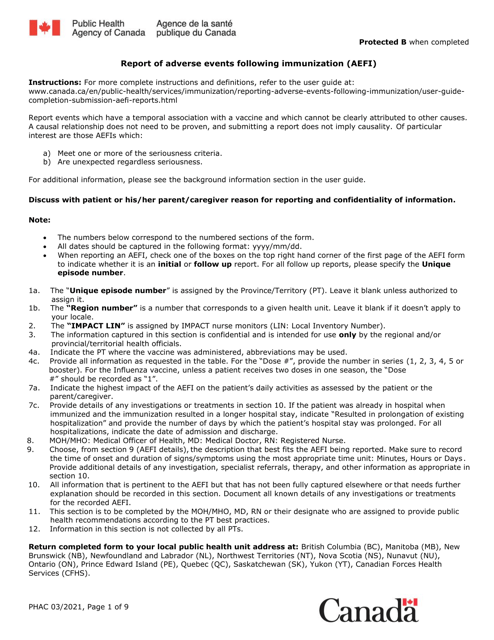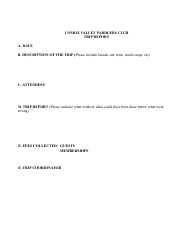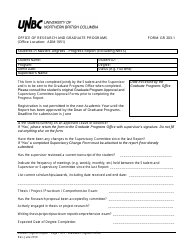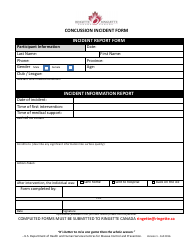Report of Adverse Events Following Immunization (Aefi) - Canada
The Report of Adverse Events Following Immunization (AEFI) in Canada is used to track and monitor any negative effects or events that occur after receiving a vaccination. This system helps identify and analyze potential risks associated with vaccines to ensure the safety of the public.
In Canada, the report of adverse events following immunization (AEFI) is typically filed by healthcare professionals, such as doctors or nurses.
FAQ
Q: What is an Adverse Event Following Immunization (AEFI)?
A: AEFI refers to any unexpected or unwanted event that occurs after receiving a vaccine.
Q: Why is it important to monitor AEFIs?
A: Monitoring AEFIs helps ensure the safety of vaccines and identify any potential concerns.
Q: Who reports AEFIs in Canada?
A: Healthcare professionals, vaccine recipients, or their caregivers can report AEFIs to the local public health authorities.
Q: What happens after an AEFI is reported?
A: The reported AEFI is investigated to determine its cause and whether it is related to the vaccine.
Q: Are all AEFIs caused by vaccines?
A: Not all AEFIs are caused by vaccines. Some may be coincidental or due to unrelated factors.
Q: Do all AEFIs require medical intervention?
A: Not all AEFIs require medical intervention. Most AEFIs are minor and resolve on their own.
Q: How can I report an AEFI?
A: You can report an AEFI to your local public health authorities or through the Vaccine Adverse Event Reporting System (VAERS).
Q: Are vaccines safe despite AEFIs?
A: Yes, vaccines are generally safe and their benefits outweigh the risks of potential AEFIs.
Q: How often do AEFIs occur?
A: AEFIs are relatively rare and occur in a small percentage of vaccine recipients.
Q: Is it mandatory to report AEFIs?
A: In Canada, reporting AEFIs is encouraged but not mandatory for healthcare professionals.





















